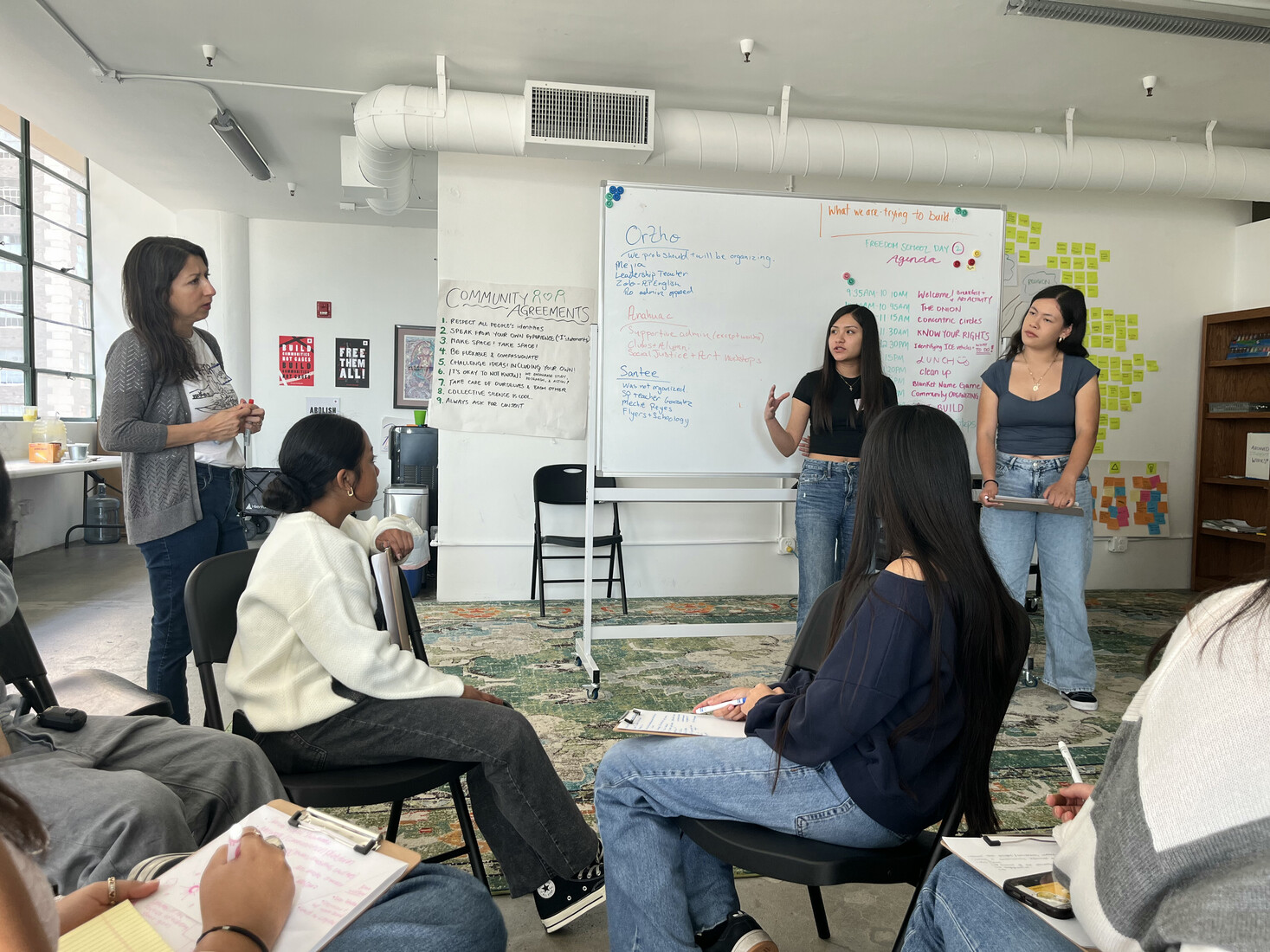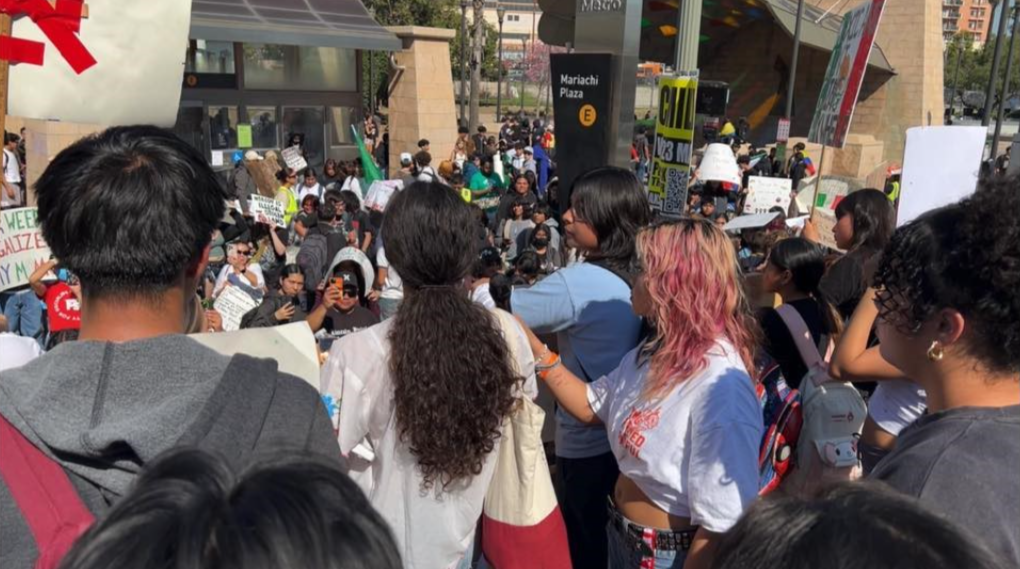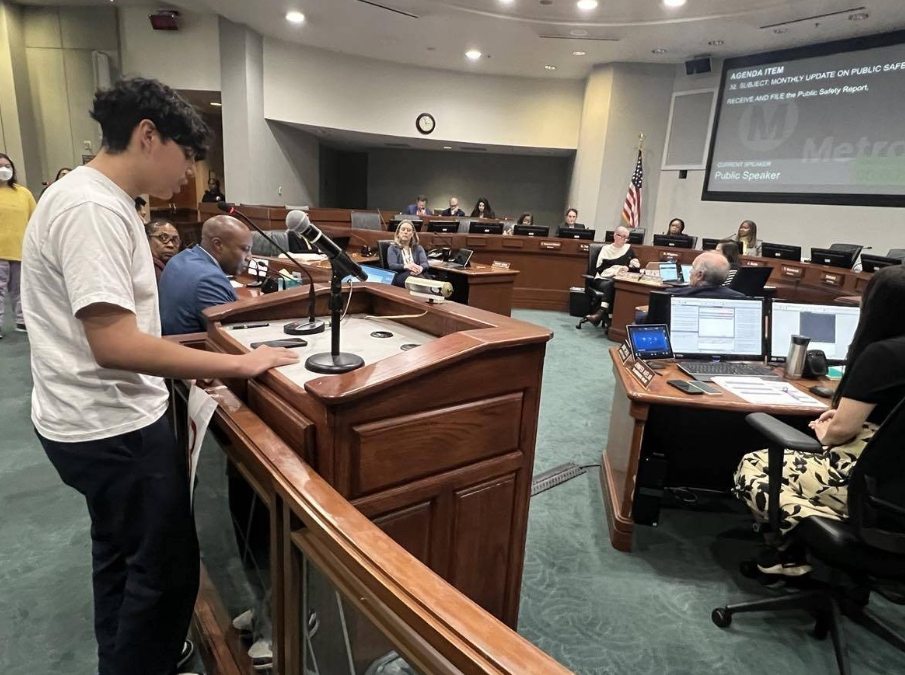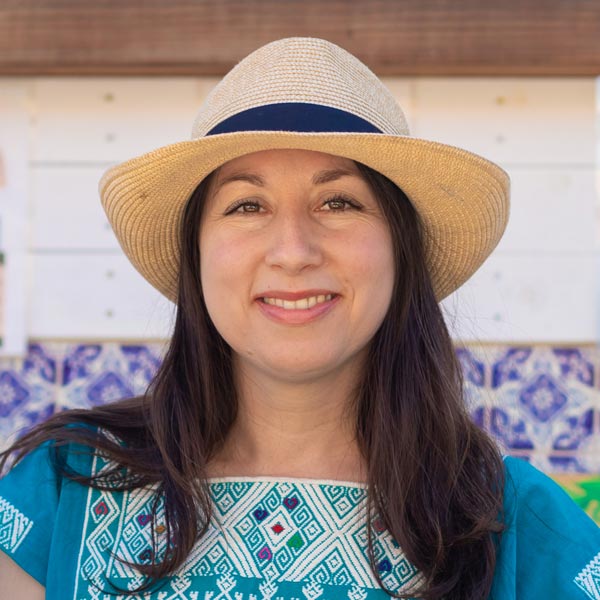
Crystal Gonzalez of AFSC, left, leads a Freedom School session. Photo: Marta Rosario
Young people deserve the right to learn and grow in healthy and safe communities. But for youth who may be undocumented themselves or come from mixed-status families, the threat of Immigration and Customs Enforcement (ICE) raids, detentions, and deportations is all too real.
That’s where AFSC’s Roots for Peace Freedom Schools come in. These multi-day sessions for youth offer community building and political education, and serve as a diving board for taking action. Through these workshops, youth learn how to organize to address systemic injustices and keep families, schools, and communities safe.
Building skills for community resistance
AFSC’s staff members Crystal Gonzalez and Adalberto Rios help students understand—and act on—the real power they already possess. Students draw from historical examples of community resistance, like the Chicano Blowouts—school walkouts in East Los Angeles in the late 1960s that challenged inferior and discriminatory education.
During a recent Freedom School, participants learned about emergency preparedness, community outreach, and how to identify ICE vehicles. Freedom School helps them explore their rights, including free speech and protest. Students learn how to lobby their school boards and other decision-makers for policies that will keep young people as safe as possible from ICE raids.

A student mobilization in L.A. in support of immigrant rights. Photo: Adalberto Rios/AFSC
Earlier this year, President Trump’s executive order rescinded a policy that prohibited ICE from entering historically protected spaces such as schools, hospitals, and places of worship. This action fueled fear among many in the community.
In response, Freedom School alumni and others—many from those same East L.A. neighborhoods from the ’60s—organized mass walkouts in protest. Students demanded that the L.A. Unified School District (LAUSD) do everything it could to protect students. And they’ve largely succeeded.
Alberto Carvalho, LAUSD Superintendent, stated “Our board passed a number of resolutions affirming our values, declaring the legal protections from a civil but also a personal perspective, and also federal law and constitutional law that protect students and families in our schools.”
As a result, in early April, an LAUSD school denied entry to Department of Homeland Security officers who requested access to perform “wellness checks” on immigrant students.
What’s ahead

Jason, a Freedom School participant, speaks at a Metro committee meeting on public safety. Photo: Adalberto Rios/AFSC
Looking forward, AFSC is preparing future Freedom Schools and youth organizing opportunities. According to Adalberto, these sessions will include more on AFSC’s invest/divest lens – which calls for investment in community and care-based alternatives that serve the needs of the public, rather than investing in more policing.
Other alumni from Freedom Schools have joined local movements for divesting from police in schools. They’ve also advocated for community-based safety alternatives to policing on public transit. Freedom Schools help build the pipeline of youth leadership around anti-militarism in Los Angeles.
“Freedom School definitely motivated me to get more involved,” said Alexa, a Freedom School participant. “It also gave me a feeling of empowerment – that even though I’m still in high school, I can make a change.”
